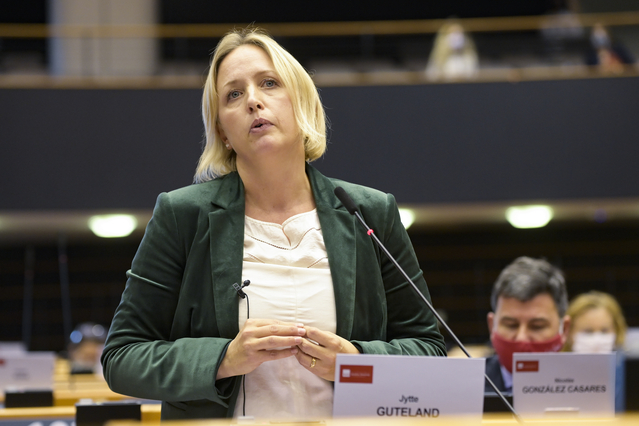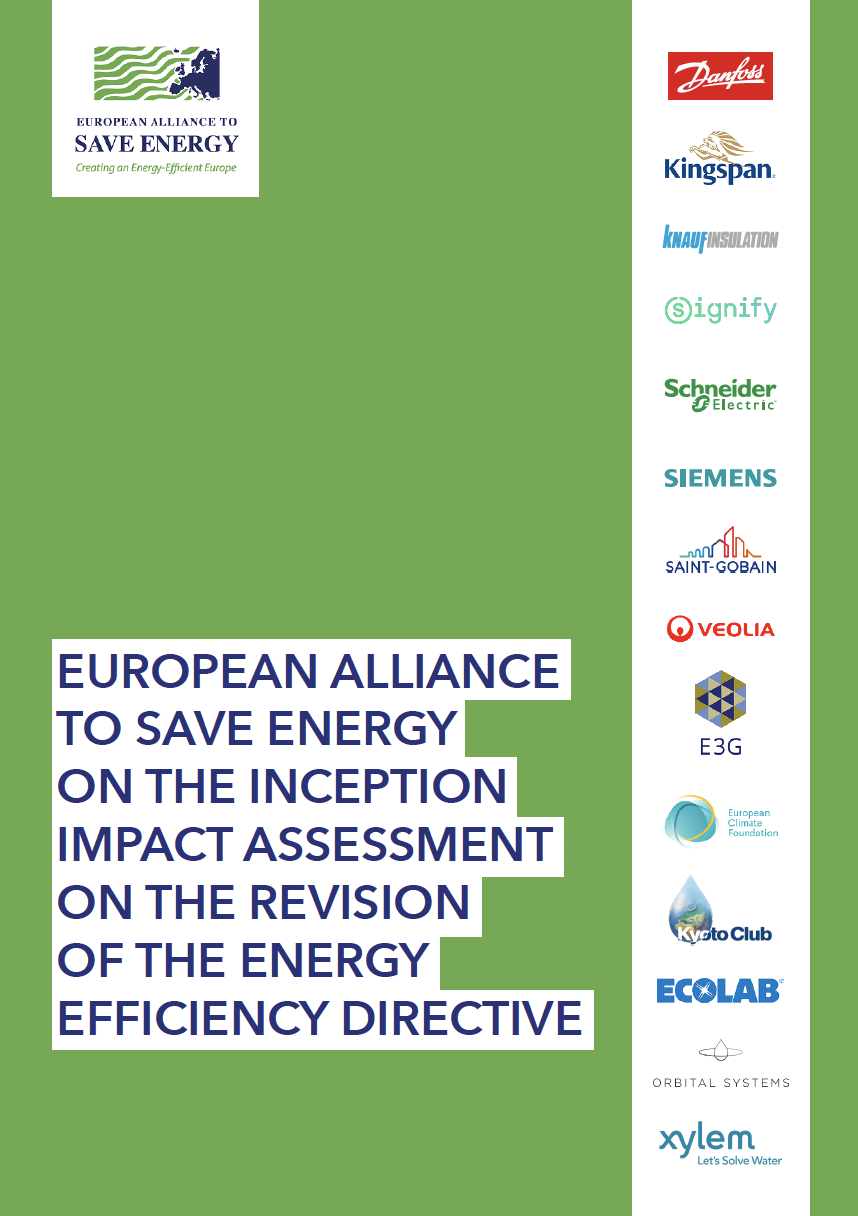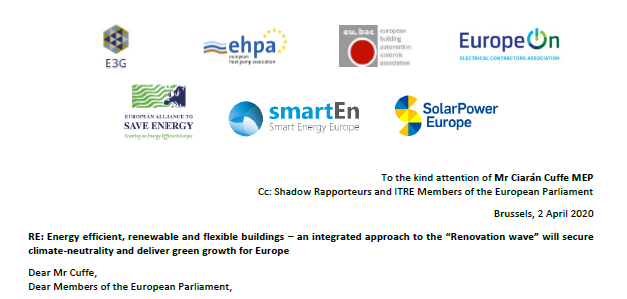Inputs for economic recovery, resilience and long-term sustainability

This short paper outlines the inputs of the European Alliance to Save Energy to achieve a green economic recovery, resilience and long-term sustainability in the aftermath of the Covid-19 pandemic.
These include spending criteria and quota that should be applied in both the Recovery and Resilience Facility Regulation (RRF), currently being negotiated by the European Parliament and Council, as in the National Recovery and Resilience Plans (NRRPs).
The paper calls for prioritising investments in areas such as energy efficiency rather than lock-in resources in fossil fuel infrastructures that undermine the achievement of the Union’s climate and environmental objectives.
A key area of intervention to boost energy efficiency and cut CO2 emissions is represented by buildings. In the NRRPs, Member States should priorities cost-effective renovation programmes that foster the quality, rate, and depth of comprehensive renovations.
Technical assistance is also essential to remove the hurdles for local authorities, SMEs and corporate investments to implement energy efficiency projects and renovate the building stock.




